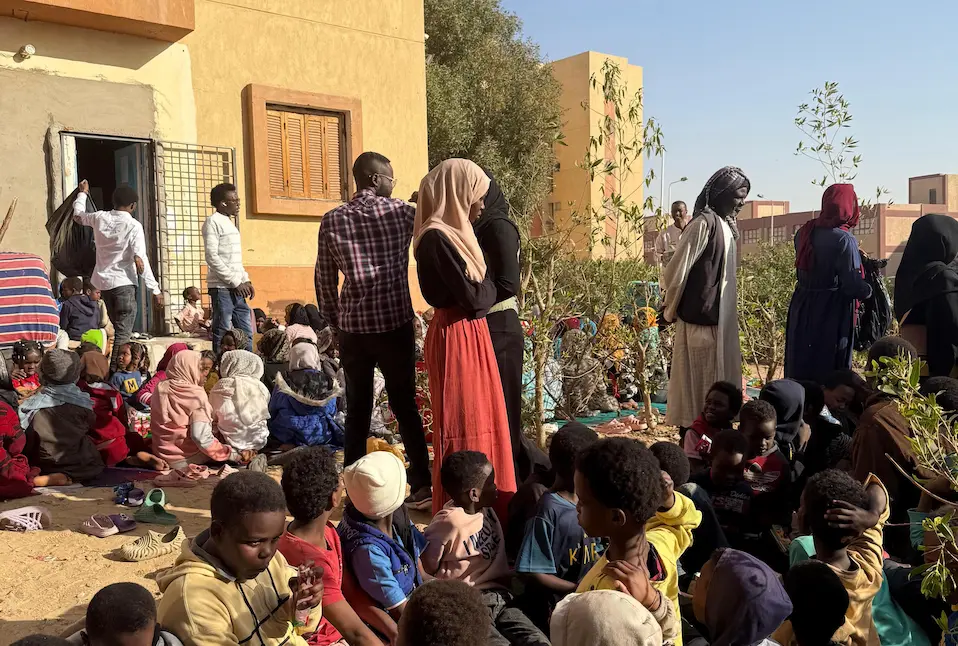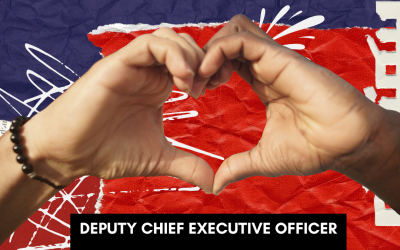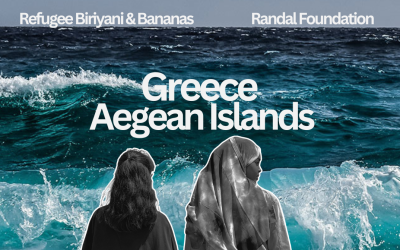E. Mark Windle 22 November 2025
“What our homeland, Sudan, is enduring today is not merely a conflict but a full-scale humanitarian catastrophe: cities destroyed, families displaced, children and women suffering from hunger and deprivation, while hospitals are targeted, aid routes are blocked, and starvation is used as a weapon of war. This tragic reality demands urgent action and genuine human responsibility.”
Abdulrahman and Abdulmalik
RBB volunteers in Chios, Greece
It is impossible not to be shocked by events that have unfolded in the long series of conflicts in Sudan, including the ongoing extreme violence taking place in the city of el-Fasher. Since the paramilitary takeover of the Sudanese city, population displacement and atrocities have taken place on an unimaginably large-scale basis, with reported acts of rape, torture and systematic executions.
The warring history in the northeast African country of Sudan is complex, with a number of actors involved. At its root lies a mix of tensions between the majority Arab north and non-Arab south, political power struggles, and the desire for land and oil acquisition. Ethnic tensions triggered two previous civil wars that occurred throughout much of the period between 1955 and the early 2000s. The second of these conflicts resulted in the deaths of over two million people, war crimes and a famine. In 2011, South Sudan became an independent republic, while troubles persisted in the rest of Sudan.
The current conflict broke out after the Sudanese dictator Omar al-Bashir was overthrown, and a power struggle ensued. Fighting has primarily been between the Sudanese army and the Rapid Support Forces (RSF), a militia group backed by the UAE, with US, UK and EU complicity evident through political silence, arms supply to UAE and interests in Sudan’s goldmine and oil reserves.
Intense fighting commenced in Khartoum, which continues to this day and has caused a domino effect of violence in other areas. Ground fighting, airstrikes, the burning of hundreds of villages and ethnically driven systematic killings have been carried out mostly by the RSF. Darfur is among the regions worst affected. The United Nations Human Rights organisation reported that 10,000-15,000 people were killed in West Darfur alone during 2023. In the first half of 2025, at least 3,384 civilian deaths were recorded in Sudan (mostly in Darfur). The actual death toll is likely to be much higher. UN ambassador Linda Thomas-Greenfield has also highlighted the widespread occurrence of sexual violence towards women and young teenagers by the RSF.
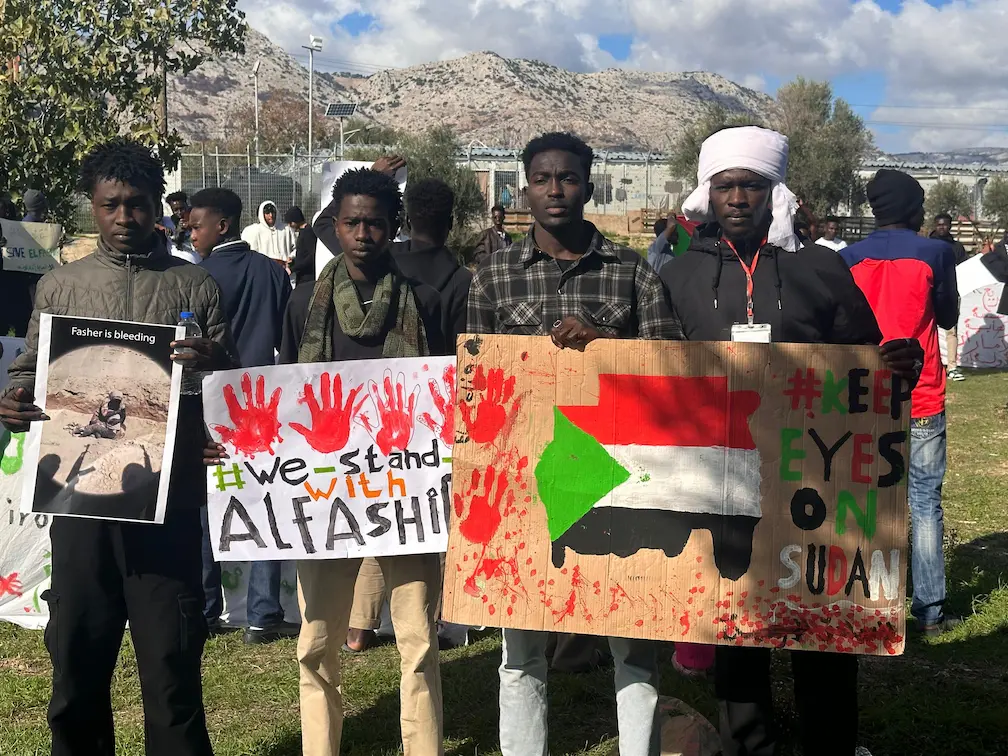
FAMINE AND ATROCITIES IN EL-FASHER
In October 2025, the RSF captured the city of el-Fasher in Darfur after one and a half years of fighting. The long period of conflict and blockade had already subjected civilians to containment and starvation within the city boundaries. Using the International Food Security Phase Classification criteria for assessing levels of food insecurity and malnutrition, the Famine Review Committee has declared a state of famine in el-Fasher and elsewhere.
Since the RSF gained control of the city, multiple reports have appeared of looting, torture, rape and summary executions on the basis of ethnicity. At the Saudi Maternity Hospital, around 500 patients, relatives, health workers and others who had come to the building for refuge were reportedly killed by RSF members. Analysis by Yale University of satellite imagery has supported suspicions of mass killings, the digging of huge grave-pits, house-by-house executions, and the construction of a large earth wall perimeter to trap the city’s inhabitants.
In August 2025, the UN estimated that 30.4 million Sudanese people required some form of humanitarian support. As of November, around 12 million have been displaced from their homes. Half of the population is experiencing high levels of acute food insecurity, with 4 million children facing severe malnutrition.
“We express our deep regret over the silence of the international community and regional organizations in the face of our people’s suffering, and we urge them to act decisively and responsibly to stop the ongoing crimes. We call for an independent international investigation into war crimes and crimes against humanity, sanctions on all parties or states that finance or supply weapons to militias and guaranteed and unrestricted access for humanitarian aid and the immediate lifting of all blockades on affected areas.”
Sudanese Youth in Chios, Greece
FLEEING TO EGYPT
For those attempting to flee Sudan the journey is highly dangerous, not least because the RSF guards the borderlines. In desperation, and despite the risk of further persecution or exploitation on arrival to neighbouring countries, over 4 million people have travelled to Egypt, South Sudan, Chad and Libya. Some also attempt the perilous onward trip by small boat or dinghy to Greece, where they are housed in temporary shelters or sent to closed camps for refugee processing.
Egypt is now reported as the country with the highest number of people from Sudan. Recent estimates from the Government of Egypt state that around 1.5 million people from Sudan are currently living in Cairo after fleeing the ongoing conflict. United Nations Refugee Agency (UNHCR; September 2025), however, reports that approximately 806,946 Sudanese people are registered as refugees or asylum seekers in Egypt. This is significantly lower than the government’s wider estimate, meaning that a large proportion of Sudanese people in Cairo remain unregistered.
For people who are not registered, daily life becomes even more precarious.
Most head for Cairo, partly because of existing diaspora communities there (Egypt has no formal refugee camps) and because it is the location of the main UNHCR office. Formal registration with the agency offers access to certain critical services and starts the formal asylum application process that would prevent a forced return.
On arrival in Egypt, further challenges are faced. These include crowded and substandard housing conditions, legal barriers affecting the ability to register for asylum, economic hardship resulting in food insecurity and street begging, and a deterioration of physical and mental health. Women are vulnerable to violent attacks such as sexual violence, and children are at risk of being kidnapped.
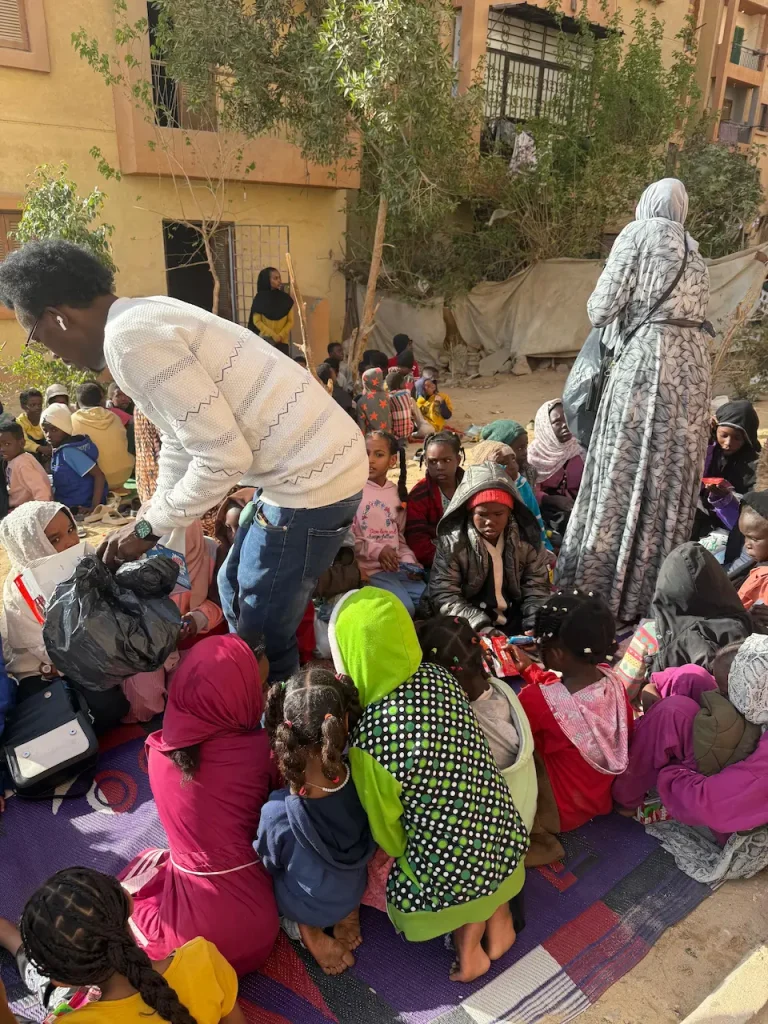
Image copyright Ruhi Loren Akhtar
WHAT REFUGEE BIRIYANI & BANANAS IS DOING TO HELP IN CAIRO
RBB actively supports people in refugee camps and other unstable living conditions across Europe and the Middle East. Our main base of operations is currently on the Greek island of Chios and in Cairo, distributing food, nutrition and hygiene products, and providing social help and advocacy to people fleeing from Sudan and other war-torn countries.
Between 2023 and 2025, the RBB carried out a number of needs assessment exercises, gaining on-the-ground insight into the situation in Cairo, and from consultation with displaced people from Sudan who had arrived at Chios via Egypt. A number of projects were identified that would necessitate coordination of activities with other NGOs and volunteers, fundraising and the procurement of goods, establishing aid distribution networks, and ongoing monitoring of the situation in Cairo.
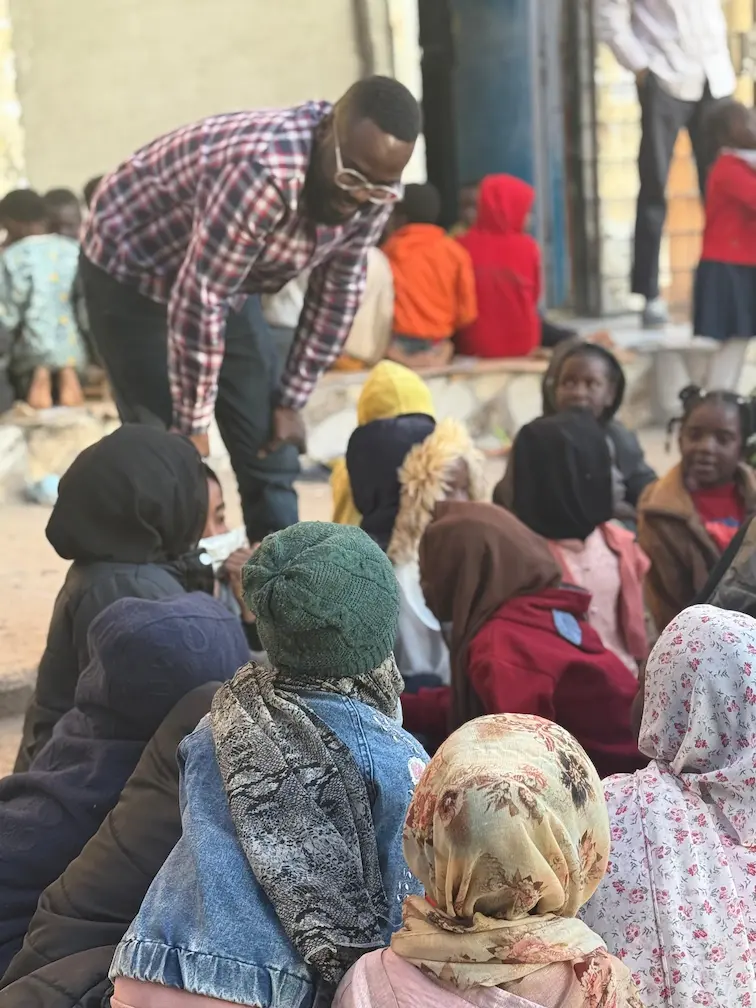
Image copyright Ruhi Loren Akhtar.
RBB has been assisting the Sudanese community and other displaced people in Cairo for around a year and a half. Initiatives include large-scale food distribution, capacity strengthening, supporting volunteer-led food projects and community building. In February 2025, RBB repurposed two blocked Gaza aid trucks into a Cairo volunteer programme, in which Sudanese and Palestinian youth packed and distributed 2,000 food parcels.
“They once chanted for freedom, peace, and justice — their voices, led by Sudanese women, became the heartbeat of a revolution. Now, in el-Fasher, those same voices are being silenced by war, displacement, and unimaginable violence. The world cannot stay quiet while Darfur burns again. Act now. Speak out. Share. Donate. Pressure leaders. Every action matters.”
Ruhi Akhtar
Founder and CEO, Refugee Biriyani & Bananas
RBB ‘s latest planned project in Cairo is a community partnership venture to establish emergency shelter for displaced people from Sudan, Palestine, Somalia, Yemen, Eritrea and Ethiopia. The primary purpose will be to protect lives—particularly of pregnant women (and those with babies), unaccompanied minors, the elderly, the chronically ill, the disabled and those without documentation to access governmental support. By providing safe accommodation in Cairo, the need for begging will be reduced, as will the risk of exploitation or abduction. The project will also enable easier access to humanitarian aid and social support. The initiative is envisioned to benefit up to 1,200 people in the first year of operation.
With the recently escalating situation in el-Fasher and rapid influx of people to Cairo from Sudan, the need for emergency housing has never been more crucial. Please help Refugee Biriyani & Bananas to help others.

